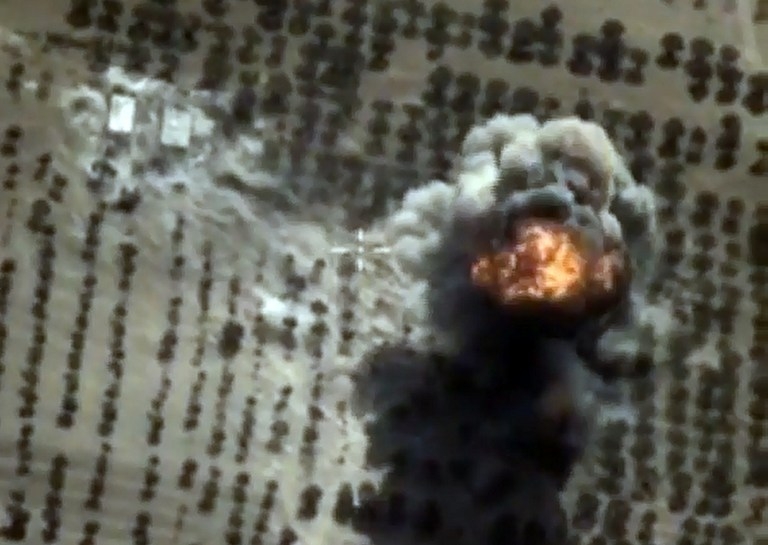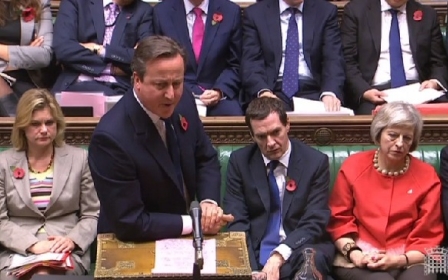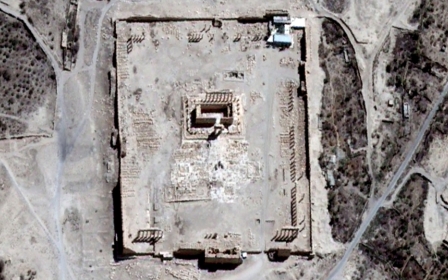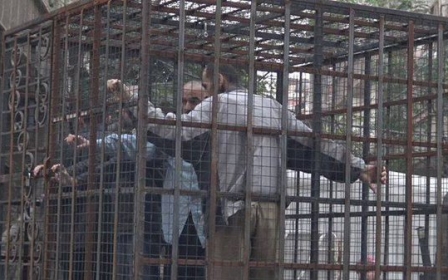Cameron abandons plan for vote on Syria air strikes: Report

British Prime Minister David Cameron will not move forward with a vote to approve British air strikes against the Islamic State (IS) militant group in Syria, according to a report in the Guardian, citing a Whitehall source.
Cameron apparently decided to shelve the vote, discussed in recent weeks, because he would not have enough support among Labour MPs. Russia’s intervention in Syria, which began in late September, has also “complicated the picture”, the source told the Guardian.
A Commons foreign affairs select committee has also questioned the value of extending the strikes which the UK started launching in Iraq last year.
On Tuesday the committee, chaired by Conservative MP Crispin Blunt, who served in the British army, released a 28-page report suggesting that without a clear strategy to defeat IS, strikes should not be conducted in Syria and suggested that Cameron's focus on extending strikes to Syria was "incoherent" and "a distraction".
"We are concerned that the government is focusing on extending air strikes to Syria... without any expectation that its action will be militarily decisive, and without a coherent and long-term plan for defeating ISIL [IS] and ending the civil war," said Blunt.
"There is now a miscellany of uncoordinated military engagements by an alarming range of international actors in Iraq and Syria... These forces desperately need coordinating into a coherent strategy and that is where our efforts should be focused."
Responding to news that Cameron had shelved the vote, a Downing Street source told the Guardian that Cameron's position hasn't changed.
"He’s consistently said that we would only go back to the house on this issue if there was clear consensus and that remains the case," the source said.
“Meanwhile, the government continues to work to bring the conflict to an end in Syria and we are working closely with our allies to inject greater momentum into efforts to find a political solution, which we’ve always said will be the way to bring this war to an end and give Syria hope for the future.”
'Every tool available'
The government has previously argued that it is illogical to conduct air strikes in Iraq and not neighbouring Syria, saying the two countries are "a single theatre of conflict".
In his response to the report, Foreign Secretary Philip Hammond did not directly mention the possibility of a vote on Britain joining air strikes on Syria but said ministers would use "every tool available" to save lives in the region.
"RAF air strikes against ISIL are not the sole solution but military action, in coordination with our coalition allies, is having a substantial impact in degrading ISIL in Iraq," he added.
"It is right that we continue to use military force against ISIL while we use diplomatic power to work towards a political solution in the Syrian war."
Cameron's previous coalition government was badly bruised by a Commons defeat over a plan to launch air strikes in Syria in 2013 and ministers are keen to avoid a similar result.
The new leader of the main opposition Labour Party, Jeremy Corbyn, is a leading anti-war campaigner who is opposed to extending air strikes, although some Labour MPs support the move.
For action in Iraq, Britain is currently part of a coalition of more than 60 countries and has eight Tornado jets flying missions plus an unconfirmed number of Reaper drones.
This was approved by parliament in September last year.
Middle East Eye propose une couverture et une analyse indépendantes et incomparables du Moyen-Orient, de l’Afrique du Nord et d’autres régions du monde. Pour en savoir plus sur la reprise de ce contenu et les frais qui s’appliquent, veuillez remplir ce formulaire [en anglais]. Pour en savoir plus sur MEE, cliquez ici [en anglais].




